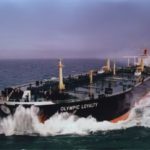Germany’s LNG import project plans

German plans for liquefied natural gas (LNG) terminals have picked up speed since Berlin declared them vital to its effort to diversify away from Russian energy.
Germany has leased four floating storage and regasification units (FSRUs) and chosen Wilhelmshaven as its first hub for handling LNG and later clean hydrogen. Other sites will follow.
The government has earmarked 2.94 billion euros ($2.94 billion) for the projects, set to be developed by utilities RWE and Uniper, respectively.
To support development of the terminals and related pipelines that will link them to bigger cross-country networks, the energy regulator, the Bundesnetzagentur, is allowing short refinancing and write-off periods.
WILHELMSHAVEN
An FSRU is expected to be ready late this year or in early 2023.
Uniper on July 4 said it had received approval for the immediate start of construction of FSRU facilities for receiving seaborne gas.
Later, it wants to import ammonia and set up an electrolysis plant, for turning ammonia into clean hydrogen. It also wants to build a clean hydrogen storage unit at Krummhoern.
In a separate project, Tree Energy Solutions is talking to interested parties about plans for an LNG terminal to be called AvantHy at Wilhelmshaven in partnership with E.ON .
BRUNSBUETTEL
Schleswig-Holstein state wants an FSRU quickly, as a forerunner of a fixed LNG facility at Brunsbuettel with an annual handling capacity of 8 billion cubic meters (bcm), expandable to 10 bcm.
The environment ministry is due on July 19 to publish planning details for two related pipelines that Dutch operator Gasunie has applied to build. Gasunie has a 40% stake in the FRSU project.
The FRSU could start in 2026 or earlier and would also be developed by state bank KfW, with a stake of 50%, while utility RWE would hold 10%.
Shell would buy a large part of the LNG.
STADE
Project company Hanseatic Energy Hub (HEH) is inviting market participants to book 12 billion cubic metres, or 90%, of the annual regasification capacity of a planned hub that could materialise in 2026.
It is backed by gas network firm Fluxys, investment firm Partners Group, logistics group Buss and chemicals company Dow.
A final investment decision is expected next year.
Utility EnBW has committed itself as a buyer.
HAMBURG, ROSTOCK
Port city Hamburg, as well as Rostock on the Baltic Sea, have also been suggested as possible FSRU locations.
Source: Reuters (Reporting by Vera Eckert; Editing by Ed Osmond and Bradley Perrett)

 Hellenic Shipping News Worldwide Hellenic Shipping News Worldwide, Online Daily Newspaper on Hellenic and International Shipping
Hellenic Shipping News Worldwide Hellenic Shipping News Worldwide, Online Daily Newspaper on Hellenic and International Shipping






















 PG-Software
PG-Software